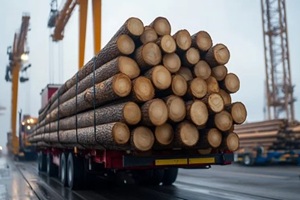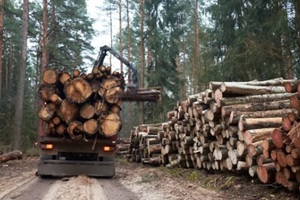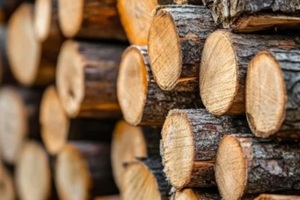
Logging is one of Virginia’s most prominent industries, supporting local economies, private landowners, and timber buyers across the state. Yet, it also bears distinct hazards and legal responsibilities. Loggers work in rugged environments, operate powerful machinery, and are exposed to environmental risks, all of which make comprehensive insurance coverage necessary.
Virginia does not have a single insurance policy labeled “logging insurance.” Still, several types of coverage are either required by law or strongly recommended for anyone in the timber industry. Knowing these requirements helps you maintain compliance, satisfy landowners, and protect your crew and equipment.
Here’s what loggers in Virginia should know about insurance requirements and best practices.
Workers’ Compensation Insurance
Businesses in Virginia with over two employees must have workers’ compensation insurance under the Virginia Workers’ Compensation Act. This requirement applies to both part-time and full-time workers, including family members and seasonal laborers.
Workers’ compensation addresses medical care, rehabilitation, and lost wages for employees who are injured at work. Claims must be reported within ten days to the Virginia Workers’ Compensation Commission, and failure to carry proper coverage may result in steep fines or even a stop-work order.
Commercial Auto Insurance
For businesses using vehicles for hauling logs, transporting crews, towing equipment, or any other business-related trips, Virginia law requires commercial auto insurance. This coverage includes liability for property damage and injuries; it may also include optional comprehensive or collision coverage.
Note that personal auto policies typically don’t cover business use, especially when it involves heavy trucks or specialized trailers. Review your vehicle list regularly with your insurance agent to make sure your entire fleet is adequately protected.
General Liability Insurance
While general liability insurance isn’t legally mandated in Virginia, it’s considered an essential safeguard for any logging business. This coverage protects against third-party injury or property damage claims, such as a visitor tripping on an extension cord or a falling tree damaging nearby infrastructure.
General liability insurance covers property repairs, medical expenses, and legal fees and settlements. Many landowners and timber buyers request proof of this coverage before signing a harvesting contract.
Inland Marine or Equipment Coverage
Logging requires specialized and expensive equipment, including skidders, loaders, feller bunchers, chainsaws, and cranes. These tools are often used in remote locations, transported across multiple job sites, and exposed to harsh conditions.
Because standard commercial property policies usually exclude mobile equipment, inland marine insurance is indispensable. It covers your business and machines, whether they’re in storage, in transit, or actively being used in the field. Without this type of protection, the entire operation is vulnerable to costly interruptions after a theft, fire, or mechanical incident.
Environmental and Timberland Liability Coverage

Logging can have a negative impact on the environment through soil erosion, sediment runoff, and water pollution. In Virginia, landowners often require proof of environmental or timberland liability insurance before allowing harvesting on their property.
These policies help cover cleanup costs, legal defense, and damages if your operation causes harm to the surrounding ecosystem. For example, if a logging road collapses into a stream or equipment leaks oil near a protected wetland, you could be held liable. The Virginia Department of Forestry provides detailed guidelines for responsible harvesting, and following these standards often requires proof of insurance.
Surety Bonds and Contract Bonds
Public land contracts and large private timber sales often require surety bonds or performance bonds. These bonds ensure that your company will fulfill specific obligations, such as replanting trees, removing debris, or protecting wildlife corridors.
The Virginia Department of Forestry may include bond requirements in timber sale contracts, especially if the land involves conservation easements or sensitive habitats. Having these financial guarantees in place builds trust with landowners and public agencies, helping you secure more contracts in the long run.
Enhancing Coverage with Optional Policies
In addition to the required and recommended insurance types, many logging businesses opt to enhance their protection with optional coverage. These policies include the following:
- Business interruption insurance provides compensation for lost income when operations are halted due to a covered event, such as a fire or equipment failure.
- Umbrella liability coverage provides additional liability limits beyond your general liability or auto policy in case of large lawsuits.
- Professional liability insurance is beneficial for forestry consultants or managers who advise on harvesting plans, forest assessments, or regulatory compliance.
A trusted broker can evaluate your specific risks and recommend enhancements customized to your operation.
Does Virginia Require Logger Notification?
Yes. Under the Silvicultural Water Quality Law (Virginia Code §10.1‑1181.2(H)), logging operators must notify the Virginia Department of Forestry (VDOF) within three working days of starting a commercial timber harvest, or before starting if the job takes fewer than three days. Failure to do so may result in fines of $250 or more.
The VDOF provides both an online notification portal and a toll‑free number: 1‑800‑939‑LOGS (5647). Once you register for a Notification Account ID, you can submit notifications quickly and be scheduled for site inspections to monitor compliance and environmental protection measures.
Protect Your Logging Operation with Burton & Company

Logging in Virginia is a demanding business, with significant financial risks associated with safety, equipment damage, and environmental exposure. However, an effective insurance policy increases resilience and contributes to a successful operation for the long haul.
At Burton & Company, we guide logging professionals through Virginia’s insurance requirements and build strong protection for their crews, equipment, and reputation. Whether you’re working with private landowners, public agencies, or your own timberland, we’ll personalize a policy package for your specific needs.
Call (888) 652-1325 or contact us online to speak with a logging insurance specialist today. We’ll help you meet your obligations, avoid costly setbacks, and keep your business growing strong.

